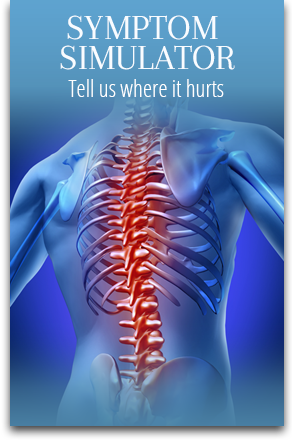Vertigo/Dizziness in Madison, Ohio
Many conditions cause vertigo and dizziness, such as spinal dysfunction, migraine headaches, diabetes, inner ear problems, low blood sugar and hypothyroidism. At French Chiropractic and Wellness Center in Madison, we offer complementary treatments for vertigo and dizziness to the residents of Painesville, Mentor and surrounding communities in Ohio.
What is Vertigo/Dizziness?
Neck or head trauma often causes vertigo, leading to individuals visiting a chiropractor for treatments to alleviate the feelings of dizziness. Constant dizziness makes a normal lifestyle difficult for individuals at work, school or home. The symptoms of dizziness can occur at any time, making certain situations dangerous, including driving a vehicle or climbing a ladder. In many cases, patients visiting a chiropractor complain of additional symptoms such as:
- Heavy perspiration
- Intense nausea
- Frequent vomiting
- Ringing in the ears
- Loss of balance
- Strange eye movements
- Spinning sensations
A variety of conditions cause vertigo and each type requiring a specialized treatment from a physician after a thorough physical examination. Because vertigo is often a symptom of other conditions such as a stroke, burst eardrum or tumor, a chiropractor might refer a patient to a specialist for additional tests. Occasionally, vertigo is a symptom of a rarer disorder such as multiple sclerosis, leading to a referral to a neurologist. In most cases, vertigo has a simple cause such as cervicogenic vertigo (originating in the neck), benign paroxysmal positional vertigo, labyrinthitis or Meniere’s disease, requiring conservative care from a wellness and chiropractic center.
Benign Paroxysmal Positional Vertigo (BPPV)
Benign paroxysmal positional vertigo is diagnosed frequently in patients visiting a chiropractor because approximately 20% of the general population, including children, teenagers and adults suffering from the symptoms of chronic or frequent dizziness has this form of positional or benign vertigo. Statistically, senior citizens are diagnosed with benign paroxysmal positional vertigo 50% of the time. This is a vestibular disorder involving the inner ear and caused by flaking debris in the ear canal, leading to episodes of vertigo that last approximately one minute. The feelings of vertigo occur when someone changes position such as standing up after reclining. This condition is often undiagnosed because individuals do not consider it serious, but the dizziness gets worse without effective treatment. Fortunately, a correct diagnosis and treatment plan can alleviate symptoms and cure the condition of BPPV.
What are the Causes of BPPV?
There are several reasons why individuals develop BPPV, such as
- A severe virus or cold affecting the sinus cavities and ears
- Minor strokes that change blood circulation
- Head trauma such as a concussion
- Over-the-counter or prescription ototoxic medications
- The natural aging process leading to damage inside the inner ear
Many individuals try to resolve vertigo symptoms with store-bought medications such as antihistamines that have sedative qualities, making it more difficult to balance and dangerous to drive a vehicle. For older individuals with vertigo, the most common cause is from a whiplash, head trauma or degeneration of the ear canal. In 50% of patients, physicians are unable to determine the cause of BPPV, labeling it as idiopathic in origin.
What are the Symptoms of BPPV?
The symptoms of BPPV begin suddenly with patients experiencing dizziness when changing positions such as getting out of bed in the morning or performing exercise movements during yoga or Pilates that require bending down and standing up. The symptoms of BPPV include
- Nausea from loss of balance
- Feeling light-headed
- Brief but intense dizzy spells
- Tinnitus that causes strange sounds in the inner ear
Diagnosis of BPPV
At a wellness and chiropractic center, a specialist can perform diagnostic tests after getting a patient’s complete health history. Of utmost importance is knowing if the patient has had a head trauma or is taking medication that can lead to BPPV. A thorough neurological and physical examination is necessary to determine the type of vertigo a patient has to plan the best treatment. To diagnose benign paroxysmal positional vertigo that closely resembles central vertigo, patients undergo the Dix-Hallpike test. For this test, patients sit on an examination table in an upright position with their legs extended while rotating their head at a specific angle. The patient reclines with their head supported by a pillow on the lower back while the physician observes the patient’s eyes for unusual movements. A nystagmus toward one side can help with determining if the right or left ear canal is affected, causing a patient’s BPPV symptoms. After observing the eyes in this position, the patient sits up while the physician looks for additional unusual eye movements.
Treatment of BPPV
At French Chiropractic and Wellness Center located in Madison, Ohio, patients receive spinal adjustments and Epley maneuver therapies that are highly effective for most patients. The movements are designed to use gravity to move the calcium carbonate crystals in the inner ear to a new area to eliminate vertigo. After three or four of these treatments, 80 percent of patients have no more vertigo symptoms but must also perform vestibular rehabilitation exercises at home. Only 15 percent of patients will experience a recurrence of symptoms, making this form of chiropractic care a vital treatment for BPPV.
Isn’t it time you tried chiropractic care for you and your family? If you are experiencing any of the common symptoms vertigo/dizziness, please contact our office now to schedule an appointment.







